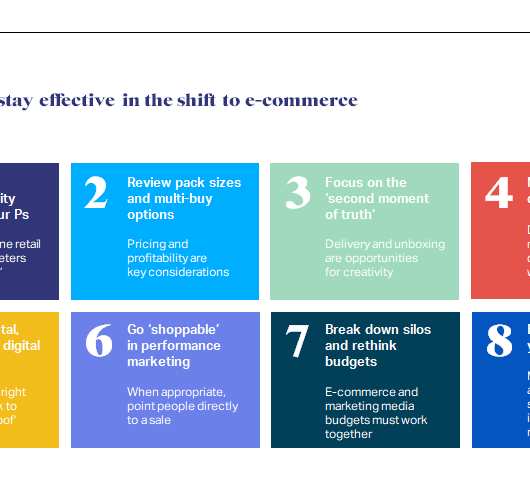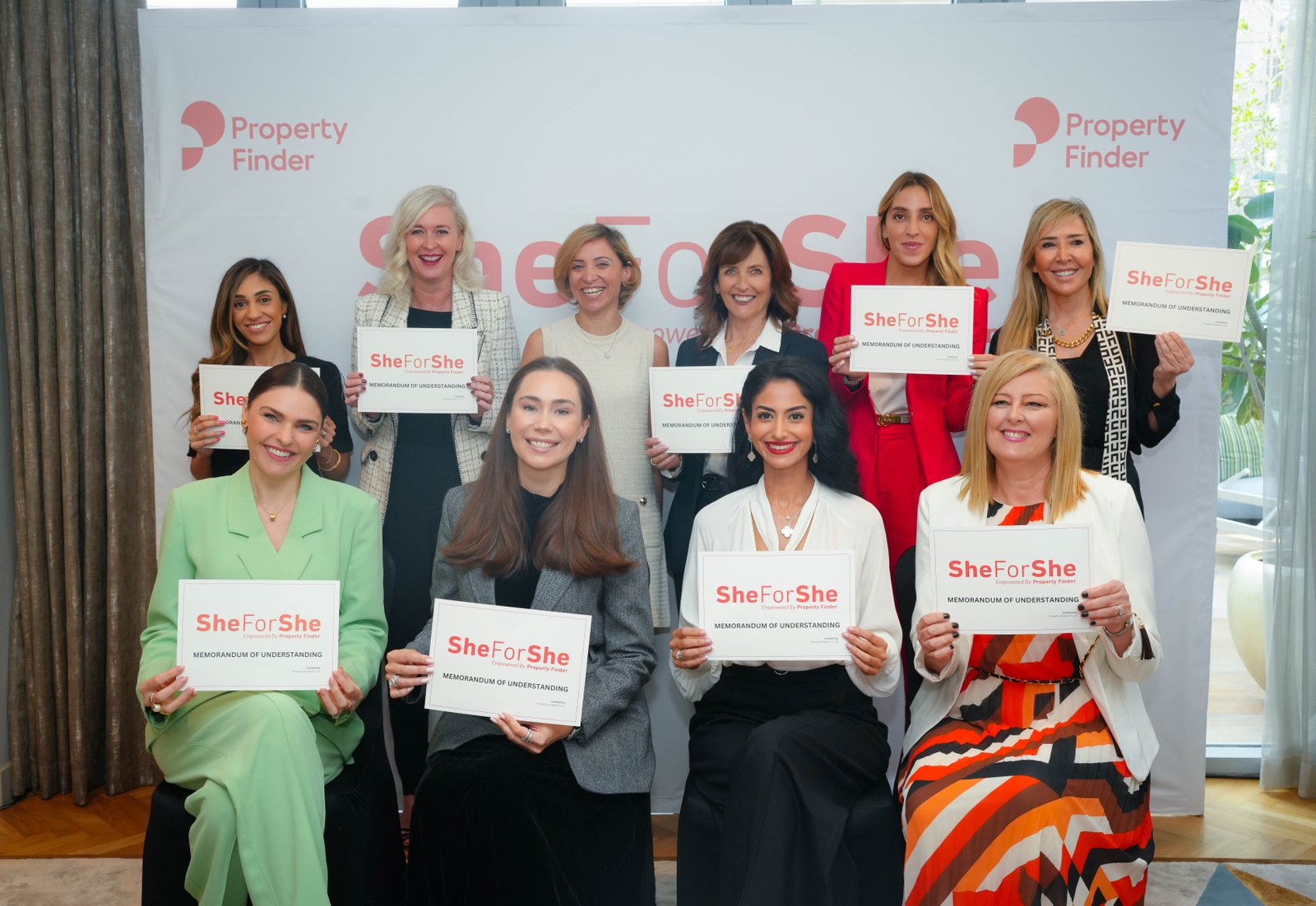Week: October 12th – 16th
Several weeks ago, when the gravity of the situation became clear, Interbrand started regular reporting on how brands were dealing with the COVID-19 crisis. What’s now becoming clear is that the current climate is one of near perpetual disruption. So the brand consulting firm made the decision to keep on telling the stories of inspiring brand leadership and strategy amid the latest crises in an anxious world. Interbrand’s goal remains the same: to provide an up-to-the-minute source of information, inspiration and insight on brand moves as they happen.

FMCG
Coca-Cola is slimming down its roster of product offerings in response to the coronavirus pandemic. The decision to discontinue its Zico coconut water brand by the end of the year “comes at a time when we are hyper focused on delivering on our consumers’ wants and needs,” a Coke spokeswoman said. The company is winnowing down its brands to ones that can achieve a large scale, she said. Products now under review include Diet Coke Feisty Cherry; Coke Life, a lower-calorie version of the cola sweetened with stevia; and regional American soda brands such as Northern Neck Ginger Ale and Delaware Punch.
The beverage company has 500 fully or partially owned brands around the world and last month said it is aiming to cut that number by more than half. The effort is part of a broader restructuring spurred by the coronavirus crisis that includes layoffs and a revamped marketing strategy.
Mondelez is reallocating some funds originally allocated for travel, consulting and real estate to boost the snack maker’s marketing, and the company for the first time will spend the majority of its ad dollars on digital channels instead of on TV commercials.
The owner of Oreos, Cadbury and Ritz crackers cut its marketing spending at the start of the coronavirus pandemic to bring down costs, but now it’s reversing course, trying to hold on to recent sales gains in North America and stimulate demand in other markets, Chief Financial Officer Luca Zaramella said, adding: “We want to invest more in our communication to consumers.” He declined to detail how much Mondelez will dedicate to online and television advertising, but said it would be “more than ever.”
Mondelez booked $1.21 billion in advertising expenses in 2019, up from $1.17 billion in 2018, according to its latest annual report. The company in 2018 told investors it would increase spending on marketing through 2022. Sales in North America rose 17.3% in the second quarter from a year earlier to $2.02 billion. Revenue in developed markets overall grew in the second quarter from a year earlier, by 5.4%. By contrast, sales in emerging markets over the same period fell by 15.6%, Mondelez said in its latest earnings report. Mondelez generates the majority of its sales outside of the U.S.
Restaurants
Outdoor heaters, pivotal equipment as bars and restaurants try to extend al fresco dining, are in short supply. A rush of orders and shipping delays from China have driven up prices and created backlogs that could run into next year. The shortage of heat lamps, which can run from about $150 to as much as $1,500 each, is the latest headache for an industry that is teetering on the brink of collapse.
Outdoor tables have been full in recent weeks, helping restaurants limp along as customers enjoy the pleasant weather and relish the chance to socialize after months of lockdown. But pushing outdoor dining deeper into the year is a climate-defying Hail Mary for businesses with no good options as long as the pandemic keeps a lid on indoor restaurant capacity. New York restaurants have complained that the new regulations extending outdoor dining came too late, making it impossible to find heat lamps after they were gobbled up by restaurants in other cities and homeowners looking to extend the backyard grilling season.
California-based AEI Corp., which manufactures and distributes heaters, saw orders increase fivefold in August. In Santa Barbara, Think Green Supplies has been raising prices on the few heat lamps it has left in anticipation of a spike in orders from New York City, one of its primary markets. The company scrambled to find a new source in China after its regular suppliers said they were back ordered until 2021. It recently paid $160,000 to fly 4,500 lamps to the U.S., expediting a shipping process that can take 40 days.
Retail
Ikea will open its first second-hand store selling refurbished furniture in Sweden later this year, part of its effort to become a fully circular business by 2030. The store will open in the world’s first second-hand shopping centre in the town of Eskilstuna, called ReTuna.
The Swedish company has previously said it would start renting and recycling furniture worldwide as part of an eco-friendly drive to address concerns its affordable, flat-pack business model leads to overconsumption and waste. “If we are going to reach our sustainability goals we need to challenge ourselves and test our ideas in practice,” Ikea Sweden’s sustainability director Jonas Carlehed said in a statement.
The company aims to reduce its overall climate impact by 70 percent on average per product by 2030. The second-hand store, which is a test project that will be re-evaluated regularly, will be supplied with furniture and home furnishings from a nearby Ikea store that have been damaged and repaired. The company has already begun repairing and re-packaging products in every store that have been damaged in transit, as well as allowing customers to return products – including furniture – for resale or donation to charities.
Digital & Social Media
Instagram has just announced the global expansion of its Instagram Shopping service across IGTV. The product, which lets you watch a video then check out with a few taps, offers creators and influencers a way to more directly monetize their user base on Instagram, while also giving brands a way to sell merchandise to their followers.
Instagram said it would also soon begin testing shopping within its newer feature and TikTok rival, Reels. Instagram’s Explore section in 2018 gained a personalized Shopping channel filled with the things Instagram believed you’d want the most. It also expanded Shopping tags to Stories. Last year, it launched Checkout, a way to transact within the app when you saw something you wanted to buy. And just this summer, Instagram redesigned its dedicated Shop section, now powered by Facebook Pay.
Now, Instagram users can view products and make purchases across IGTV, Instagram Live and Stories. On IGTV, users can either complete the purchase via the in-app checkout or they can visit the seller’s website to buy. However, the expectation is that many shoppers will choose to pay for their items without leaving the app, for convenience’s sake. This allows Instagram to collect selling fees on those purchases. At scale, this can produce a new revenue stream for the company — particularly now as consumers shop online more than ever, due to the coronavirus pandemic’s acceleration of e-commerce. In the future, Instagram says its shoppable IGTV videos will be made discoverable on Instagram Shop, as well.
Review site Yelp has instituted a new consumer alert, warning you that a business has been “accused of racist behavior.” “Recently, someone associated with this business was accused of racist behavior, resulting in an influx of people posting their views to this page,” the warning says. There has been a substantial increase in the number of reviews mentioning Black-owned businesses, Yelp said in a news release Thursday.
This summer, Yelp saw a 617% rise in such reviews compared with last year. “While searches for Black-owned businesses surged on Yelp, so did the volume of reviews warning users of racist behavior at businesses,” the company said. In the interest of the company’s “zero tolerance policy to racism,” it will now place a consumer alert on a business’s page “to caution people about businesses that may be associated with overtly racist actions.”
Travel & Tourism
Japan is working towards restarting international tourism in time for the Tokyo Olympics in 2021. The first stage is under way: opening borders to residents, students and business travellers. They must take a coronavirus test ahead of flying to Japan, and stay in self-isolation for 14 days. Initially tourism is likely to be restricted to visitors from low-risk countries including Australia, New Zealand, Thailand and Vietnam. The postponed Olympic Games are due to begin on 23 July 2021.
The Singapore government has given approval for cruises to nowhere in a bid to help a tourism sector battered by the coronavirus pandemic. Residents of the city-state will from November be allowed to board the cruises, during which they will be confined to the ships for the entire time.
The Singapore Tourism Board on Thursday announced that Genting Cruise Lines’ World Dream would be the first ship to welcome passengers aboard on 6 November. Royal Caribbean International’s Quantum of the Seas will begin sailing in December. The ships launching from Singapore will only be allowed to carry half their full capacity, with extra cleaning schedules and mandatory masks “at all times”. The cruise industry has been among the hardest hit during the pandemic, after outbreaks on multiple ships among staff and passengers sharing enclosed spaces for days. Keith Tan, the Singapore Tourism Board’s chief executive, said the scheme would allow cruise lines to “regain the confidence of passengers”.
Financial Services
JPMorgan Chase & Co. is pledging to use its financing weight to push clients to align with the Paris agreement and work toward global net zero-emissions by 2050. The bank said it would invest in technologies that help reduce carbon emissions and will work with clients to cut their own carbon footprints.
JPMorgan’s bankers and advisers hold considerable sway in boardrooms around the globe. The bank plans to argue to clients that combating climate change opens the door to more capital from investors and reduces their risk of becoming outdated. Other banks have made various pledges to stop supporting Arctic drilling and coal companies. British banks NatWest Group PLC (the former RBS Group PLC) and Barclays PLC have both committed to using their business to further the Paris agreement, the 2015 deal that called on global governments to curb rising temperatures. Citigroup Inc. earlier this year said it would walk away from clients that aren’t taking climate change seriously.
Sports
Fitness bike brand Peloton is targeting a new market with its latest video spots: normal people. The omnichannel campaign, titled “We All Have Our Reasons,” features real Peloton riders rather than the widely criticized wealthy, thin, white “Peloton wife” character of the brand’s 2019 holiday ad.
The video spots’ “real people” are diverse in terms of race, nationality, age, and gender – diversity in advertising is proven to help bottom lines. Peloton’s head of global marketing Dara Treseder said that it’s “absolutely” trying to broaden beyond young, rich consumers. “Reasons” is the company’s first campaign since it paused marketing in May due to massive word-of-mouth marketing benefits at the start of the pandemic. Peloton is spending more on this campaign than any of its previous brand campaigns.
To read the full report, please download here.
To access daily Brand Moves, please visit www.brandchannel.com.





